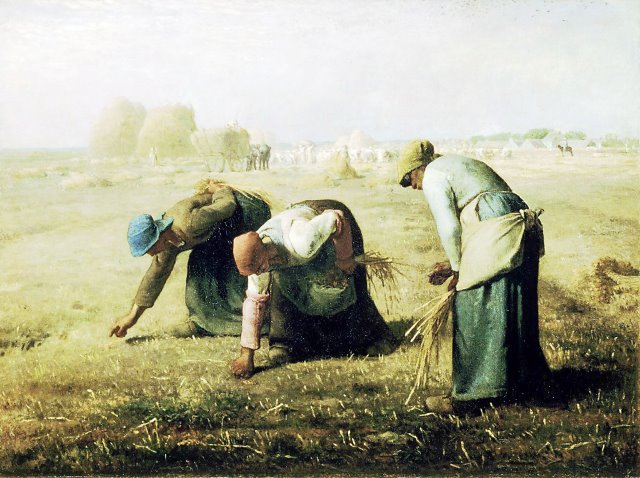
Religion

The truth about Ruth’s marriage to Boaz
STEVEN KRAWITZ
The book was written by the prophet Samuel (Shmuel HaNavi) and recounts events that occurred in Israel, and in neighbouring Moav, shortly after the death of Joshua, the original conqueror of the Land of Israel, during the early part of the three and a half centuries of rule by the Judges (Shoftim).
During a famine, Elimelech the prince of the Tribe of Yehuda, the tribe prophesised by both Yaakov and Moshe to produce the kings of Israel, fled to Moav, an enemy nation. He did not want to support the endless queues of beggars and abdicated leadership responsibility to selfishly protect his wealth.
He took his wife Naomi and two sons with him. Elimelech died in Moav and his two sons then took Moabite princesses as partners, one of whom was Ruth. The family suffered further tragedies: the loss of their wealth and the death of two sons.
Naomi, a tragic figure, returns to Beth-lechem, where she owns a field inherited from her father and where her extended family lives. Ruth returns with her and converts, becoming the prototype convert to Torah and Judaism.
Although Elimelech and Naomi were first cousins, their marriage was fully permitted: There are no Torah nor rabbinic prohibitions on such a marriage. Their fathers were brothers. The most senior member of the family, was a man called Tov, and next was the presiding judge, Boaz, also as known as Ivtsan.
As destitute people, Naomi and Ruth, who returned at the start of the harvest season, were allowed to follow farmhands harvesting grains and to collect gifts for the poor as mandated by the Torah.
Ruth went out to the fields, sparing Naomi any public humiliation from her reduced circumstances. Ruth chanced upon Boaz’s fields and he encouraged her to spend the harvest season in his fields.
At the end of the harvest season, Naomi sends a message with Ruth to Boaz: I want to sell my lands, to a member of the family, and whoever buys the lands must marry Ruth. Boaz guarantees to Ruth that he will resolve this situation.
Boaz asks Tov if he wants to buy Naomi’s fields. Tov baulks at the prospect of marriage to Ruth, due to her Moabite roots and the Torah’s prohibitions on marrying converts from Moav.
Boaz agrees to buy the lands and marry Ruth, maintaining correctly that the Torah only forbids marriage between Jewish women and male Moabite converts, not between Jewish men and Moabite female converts.
Ruth and Boaz’s marriage produced a son, Oved who was the father of Yishai, the father of David HaMelech, giving Ruth the title “Mother of Royalty”.
Why did Naomi insist on a family member marrying Ruth? Some commentators want to explain Naomi’s intentions with the Torah concept of Yibum. Yibum, the Levirite Marriage, occurs when a married man dies without any children. His widow is not free to remarry; rather she is still connected to her late husband’s family.
This connection can either be restored to a state of marriage by marrying one of her husband’s brothers, or must be severed by a ceremony called Chalitzah (since the Second Temple era Yibum has not been practised and in all cases Chalitzah has been the sole option).
A Kabbalistic reason for Yibum is to channel the soul of the dead husband into a child born from the marriage, giving the soul a second opportunity to ultimately transcend death by fathering children.
Those who use Yibum to explain Ruth’s marriage to Boaz, even propose that Oved was a reincarnation of Naomi’s younger son, Ruth’s partner.
Yibum could not have been Naomi’s motivation, for a number of reasons: Ruth was not actually married to Naomi’s son and she only converted after his death. There is no Yibum in such situations. Furthermore, Yibum is to the husband’s brother and not any other family member.
A more straightforward explanation for the marriage is that Naomi was very close to Ruth, who supported her through all her sufferings and felt responsible for her long-term welfare.
Naomi had inherited land she now wanted to sell, and following Torah guidelines, decided to sell to a family member. She simply made the land sale conditional on the buyer marrying Ruth, increasing her marriage prospects and ultimately securing her future.
Naomi repaid Ruth for her incredible kindness and saw her “adopted-daughter” marry the leader of the generation, a position her husband had abdicated. This reading is supported by the Midrash Tanchuma on Parshas Behar.
A question to ponder over Shavuot is: If Moav is such a hated enemy nation, why does King David, and ultimately Mashiach, have to have Moabite ancestry?





Charlton
November 1, 2018 at 12:15 pm
‘How long were Ruth and Boaz married? I believe it to be just one day?’